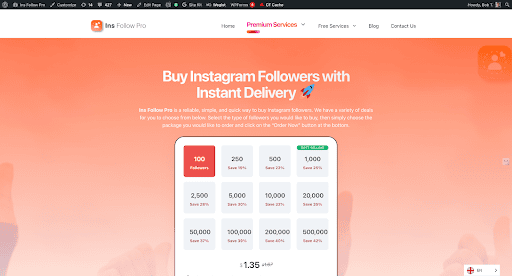
Do you have an e-commerce business? If so, you probably already know that it offers you almost limitless opportunities of earning a lucrative income and allows you to be your own boss.
That being said, running your own e-commerce business can have its own challenges.
This article will take a look at the main challenges with e-commerce businesses.
Chinese New Year
Let`s start with a relevant one these days. Chinese New Year typically falls between 21 January and 20 February each year, depending on the moon’s phases.
During this time, things slow down greatly in China when the population celebrates the new year and spends time with friends and family. During the Chinese New Year period, people take off at least a week (if not two) and the economy comes to a halt.
This results in many warehouse and logistics delays, and if you work with partners who observe this break, you may have many unhappy customers on your hands.
A great way to solve this is to work with a partner who works around Chinese New Year delays. Sellvia, for instance, helps e-commerce business owners to remain unaffected by this holiday. With their US-based fulfillment center, you can carry on as you normally would.
Choosing The Right Product To Sell
A common challenge for many e-commerce newbies is selling the most suitable product.
Some people fall in love with certain products and their passion for the product affects their ability to choose the best product to sell on their e-commerce platform.
Although you might know everything there is to know about a product and enjoy using it yourself, this doesn’t mean that it’s the right product to sell online.
Products that sell well in e-commerce businesses are those that are used extensively and popular with most people.
Bestselling products for e-commerce stores include the following:
- Beauty and health products
- Watches and jewelry
- Smartphones and smartphone accessories
- Pet supplies
- Trending kitchen products (such as blenders and slow cookers)
- Kids’ clothing and toys
- Computer accessories
Before launching your e-commerce business, it’s a good idea to conduct some market research to find out how well certain products sell.
Lead Conversion and Marketing
Having your own e-commerce business allows you to work from wherever you want and be your own boss, a major advantage for many people.
A great drawback to running an e-commerce business is marketing and lead conversion.
Since the e-commerce industry is incredibly competitive, you need to continuously let customers know that you are the best supplier and provide the best products. This is easier said than done and you have to focus your marketing efforts on the correct platforms and in the correct way.
Creating social media business profiles can help with marketing your e-commerce business effectively as long as you maintain a professional and uniform way of communicating with customers.
Lead conversion refers to how many website visitors end up making a purchase. If you have many website visitors but very lead conversions, you may need to conduct an analysis from a user’s perspective.
Potential issues affecting your lead conversion rate could be:
- Mobile website not loading seamlessly
- Website does not appeal to your target audience
- Product photos are not high quality
- Product descriptions do not give enough information or are poorly written
- Not enough customer reviews
Customer Retention
Some e-commerce business owners notice that the majority of their customers are once-off clients only, with very few returning for a repeat purchase.
There could be many reasons for this (including the nature of the product you sell which may last for many years, eliminating the need for return customers). However, if you sell consumable products, such as health and beauty products, there should be no reason why customers aren’t returning.
To ensure you have as many returning customers as possible, make sure that your customer service is exceptional. Respond to any customer queries, comments, or complaints as soon as possible (and definitely within 72 hours), and be sure to thank customers who leave feedback on your website.
Negative reviews can be turned around, so instead of arguing with a customer who’s left a negative review, apologize and try and make things right. This shows other, potential customers that you value their business and treat customers well.
If you continuously focus on providing the best customer service and best quality products, you will likely find that you retain customers more effectively.
Selecting The Best E-Commerce Partner
Having a successful e-commerce business largely depends on working with the right e-commerce partner.
Your e-commerce partner should be able to package and ship out your products as soon as a customer places an order. They also need to handle product returns timeously so that you have time to focus on building your business, marketing, and providing the best possible customer service.
Pricing Your Products and Cost of Shipping
With the world’s largest shopping platforms (think Amazon or Alibaba) offering inexpensive prices and free shipping for members, it can be challenging for e-commerce business owners to price their own products competitively.
However, there is a way around this, and it involves working with a reputable logistics partner who provides fast yet cost-effective shipping costs.
Whether you work the shipping costs into the product price (and then offer “free” shipping), or you offer customers a monthly subscription option to qualify for free shipping, this can help you to compete with the big guys.
Conclusion
As you can see, there are many e-commerce challenges but you can definitely overcome them with the correct strategy, and by working with the best partner. Good luck!


